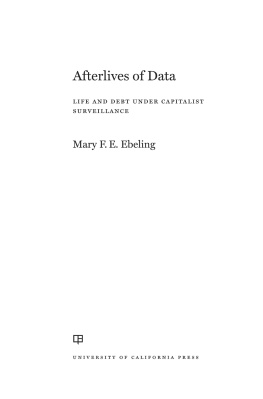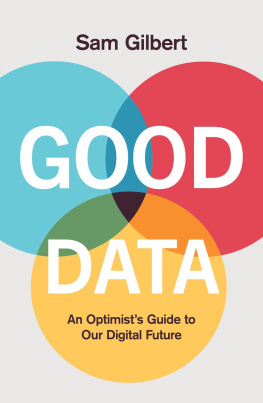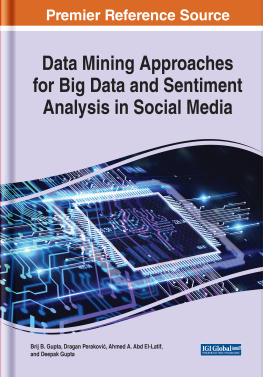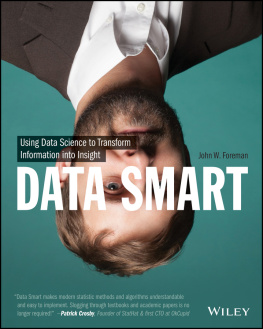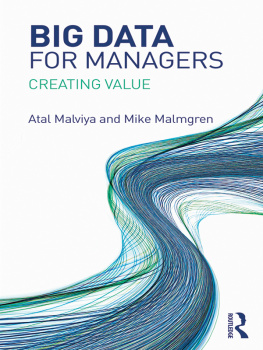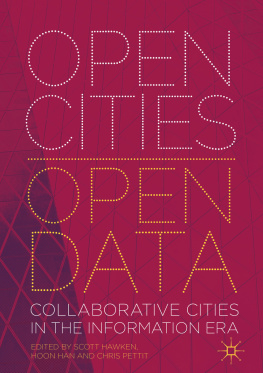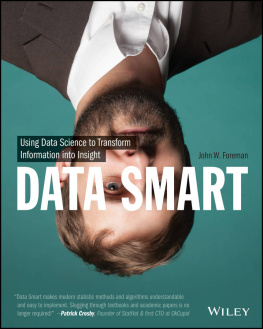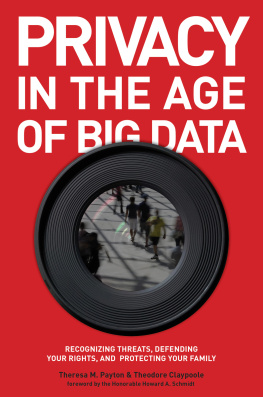ADVANCE PRAISE FOR THE COSTS OF CONNECTION
A provocative tour-de-force. A powerful interrogation of the power of data in our networked age. Through an enchanting critique of different aspects of our data soaked society, Nick Couldry and Ulises A. Mejias invite the reader to reconsider their assumptions about the moral, political, and economic order that makes data-driven technologies possible.
danah boyd, Microsoft Research and founder of Data & Society
Theres a land grab occurring right now, and its for your data and your freedom: companies are not only surveilling you, theyre increasingly influencing and controlling your behavior. This paradigm-shifting book explains the new colonialism at the heart of modern computing, and serves as a needed wake-up call to everyone who cares about our future relationship with technology.
Bruce Schneier, author of Click Here to Kill Everybody: Security and Survival in a Hyper-Connected World
This book is a must-read for those grappling with how the global data economy reproduces long-standing social injustice, and what must be done to counter this phenomenon. With a feast of insights embedded in visceral historical and contemporary illustrations, the authors brilliantly push the reader to rethink the relations between technology, power, and inequality.
Payal Arora, author of The Next Billion Users: Digital Life beyond the West
This is a deeply critical engagement with the systems that enable data colonialism to extend its reach into the past, present, and future of human life itself. Couldry and Mejias provide a comprehensive and well-considered challenge to the seeming inevitability of this transformative development in capitalism. Theirs is a giant step forward along the path toward rediscovering the meaning and possibility of self-determination. It is not too late to join in!
Oscar H. Gandy, Jr., Emeritus Professor, Annenberg School of Communication, University of Pennsylvania
Nick Couldry and Ulises A. Mejias go digging deeply into the digital: its spaces, its layers, its deployments. One of their guiding efforts concerns what it actually takes to have this digital capacity in play. It is not an innocent event: it is in some ways closer to an extractive sector, and this means there is a price we pay for its existence.
Saskia Sassen, author of Expulsions
Couldry and Mejias show that data colonialism is not a metaphor. It is a process that expands many dark chapters of the past into our shiny new world of smartphones, smart TVs, and smart stores. This book rewards the reader with important historical context, fascinating examples, clear writing, and unexpected insights scattered throughout.
Joseph Turow, University of Pennsylvania
CULTURE AND ECONOMIC LIFE
EDITORS
Frederick Wherry
Jennifer C. Lena
Greta Hsu
EDITORIAL BOARD
Gabriel Abend
Michel Anteby
Nina Bandelj
Shyon Baumann
Katherine Chen
Nigel Dodd
Amir Goldberg
David Grazian
Wendy Griswold
Brayden King
Charles Kirschbaum
Omar Lizardo
Bill Maurer
Elizabeth Pontikes
Gabriel Rossman
Lyn Spillman
Klaus Weber
Christine Williams
Viviana Zelizer
THE COSTS OF CONNECTION
How Data Is Colonizing Human Life and Appropriating It for Capitalism
NICK COULDRY AND ULISES A. MEJIAS
STANFORD UNIVERSITY PRESS
STANFORD, CALIFORNIA
Stanford University Press
Stanford, California
2019 by the Board of Trustees of the Leland Stanford Junior University.
All rights reserved.
No part of this book may be reproduced or transmitted in any form or by any means, electronic or mechanical, including photocopying and recording, or in any information storage or retrieval system without the prior written permission of Stanford University Press.
Printed in the United States of America on acid-free, archival-quality paper
Library of Congress Cataloging-in-Publication Data
Names: Couldry, Nick, author. | Mejias, Ulises Ali, author.
Title: The costs of connection : how data is colonizing human life and appropriating it for capitalism /Nick Couldry and Ulises A. Mejias.
Description: Stanford, California : Stanford University Press, 2019. | Series: Culture and economic life | Includes bibliographical references and index.
Identifiers: LCCN 2019010213 (print) | LCCN 2019011408 (ebook) | ISBN 9781503609754 (electronic) | ISBN 9781503603660 (cloth : alk. paper) | ISBN 9781503609747 (pbk. : alk. paper)
Subjects: LCSH: Information technologySocial aspects. | InternetSocial aspects. | Electronic data processingSocial aspects. | CapitalismSocial aspects.
Classification: LCC HM851 (ebook) | LCC HM851 .C685 2019 (print) | DDC 303.48/33dc23
LC record available at https://lccn.loc.gov/2019010213
Typeset by Motto Publishing Services in 10/14 Minion Pro
Cover design by Christian Fuenfhausen
Contents
Preface
Colonized by Data
The telegraph pole, the Christian cross, and the rifle arrived all at once for the Bororo people of Mato Grosso. The rifle of the soldier and the settler served to seize the Bororos land in the name of industry and progress, the cross pacified and civilized them, and the telegraph integrated them into the rest of the newly wired Brazilian republic in the mid-nineteenth century. Some Bororo donned western clothing and moved from communal to single-family dwellings, as the priests told them to do. They learned the settlers language and were put to work on the construction of the national telegraph network.
Such history is what comes to mind when most of us think of colonialism. Yet we know that the effects of colonialism continue to be felt, as indigenous people even today resist dispossession, cultural invasion, and genocide. Consider next another starting point, the Idle No More movement, a campaign by indigenous peoples in Canada to protect their ancestral resources.
Consider now a third starting pointthe question that Irish novelist Sally Rooney, dubbed the J. D. Salinger of the Snapchat generation, recently asked herself: Why wasnt I drinking enough water?
The continuity between the first and second starting points is clear, but what of the third? It might seem counterintuitive to imagine that colonialisms sites of exploitation today include the very same West that historically imposed colonialism on the rest of the world. But what if the armory of colonialism is expanding? What if new ways of appropriating human life, and the freedoms on which it depends, are emerging? That is the disturbing possibility that we explore in this book.
Lets look at Sally Rooneys story again. The simple, daily act that every individual body does of monitoring whether it has drunk enough water has suddenly become something that happens in a competitive social space. The human body has been reworked into something that requires a distant infrastructure, from which, incidentally, profit can be made. In Rooneys own words, I have contracted out one of the essential functions of my body to a piece of software. But this is just one small example of something much bigger: the systematic attempt to turn all human lives and relations into inputs for the generation of profit. Human experience, potentially every layer and aspect of it, is becoming the target of profitable extraction. We call this condition colonization by data, and it is a key dimension of how capitalism itself is evolving today.
but a highly distinctive exercise of power.
Our argument in this bookthat human life is being colonized by data and needs to be decolonizedis no approximation. We are not playing Indian. There is nothing metaphorical about the new era of coloniality that we will describe. By tracing continuities from colonialisms historical appropriation of vast territories, such as contemporary Brazil, all the way to datas role in contemporary life, we suggest that although the modes, intensities, scales, and contexts of todays dispossession are distinctive, the underlying function remains the same as under historical colonialism: to acquire large-scale resources from which economic value can be extracted.
Next page

